Bachelor of Science - Occupational Therapy Assistant
Bachelor of Science - Occupational Therapy Assistant
Passionate about making a difference? The Occupational Therapy Assistant (OTA) program at the University of North Alabama empowers you to enhance the well-being and independence of individuals affected by injury, illness, or disability. Through hands-on training and a comprehensive curriculum, you’ll gain the skills to help patients engage in meaningful daily activities, or “occupations.”
OTAs support individuals in achieving greater independence and overcoming barriers through therapeutic interventions, including but not limited to:
- Self-care and health management
- Emotional regulation
- Play and leisure activities
- Home management
- School and work-related skills
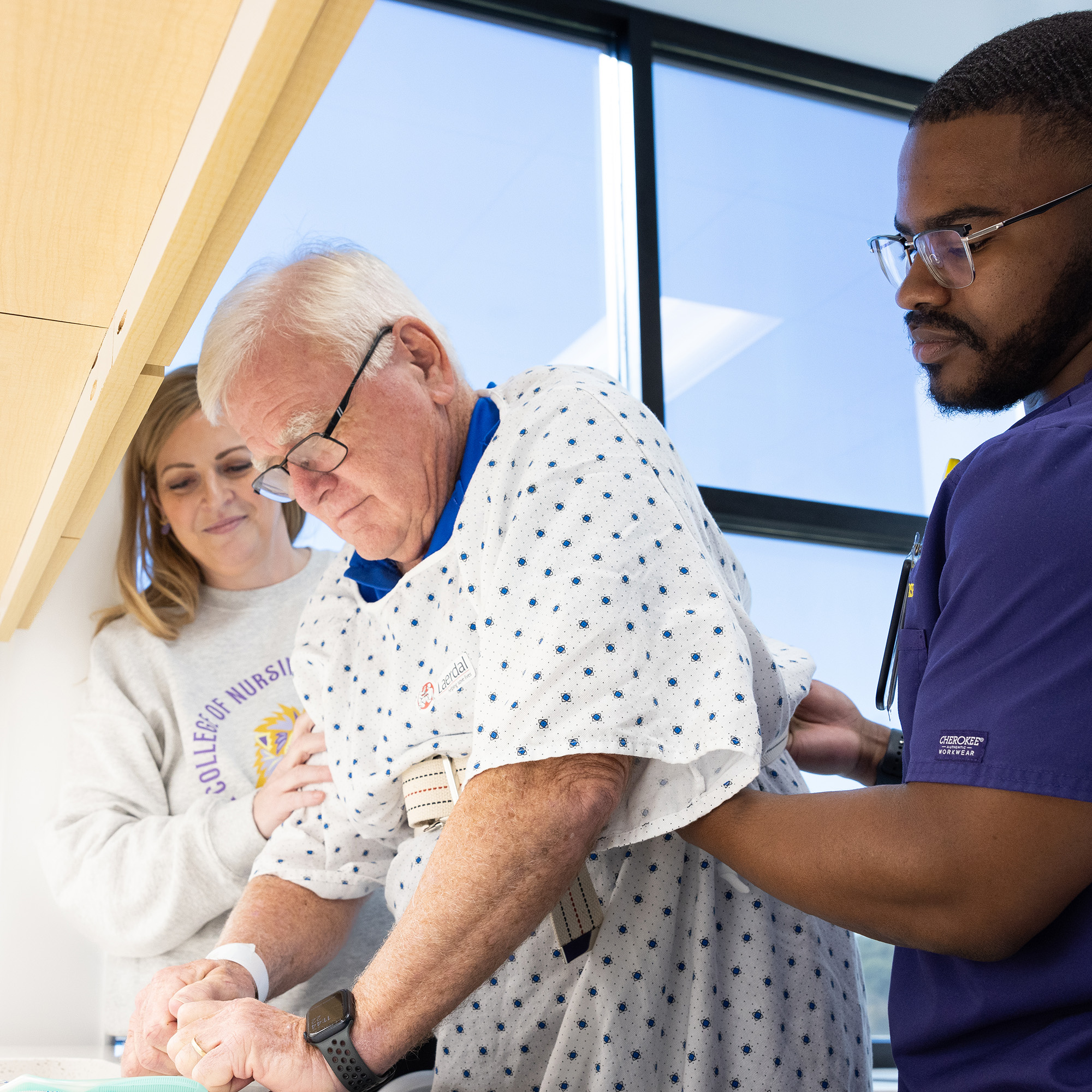
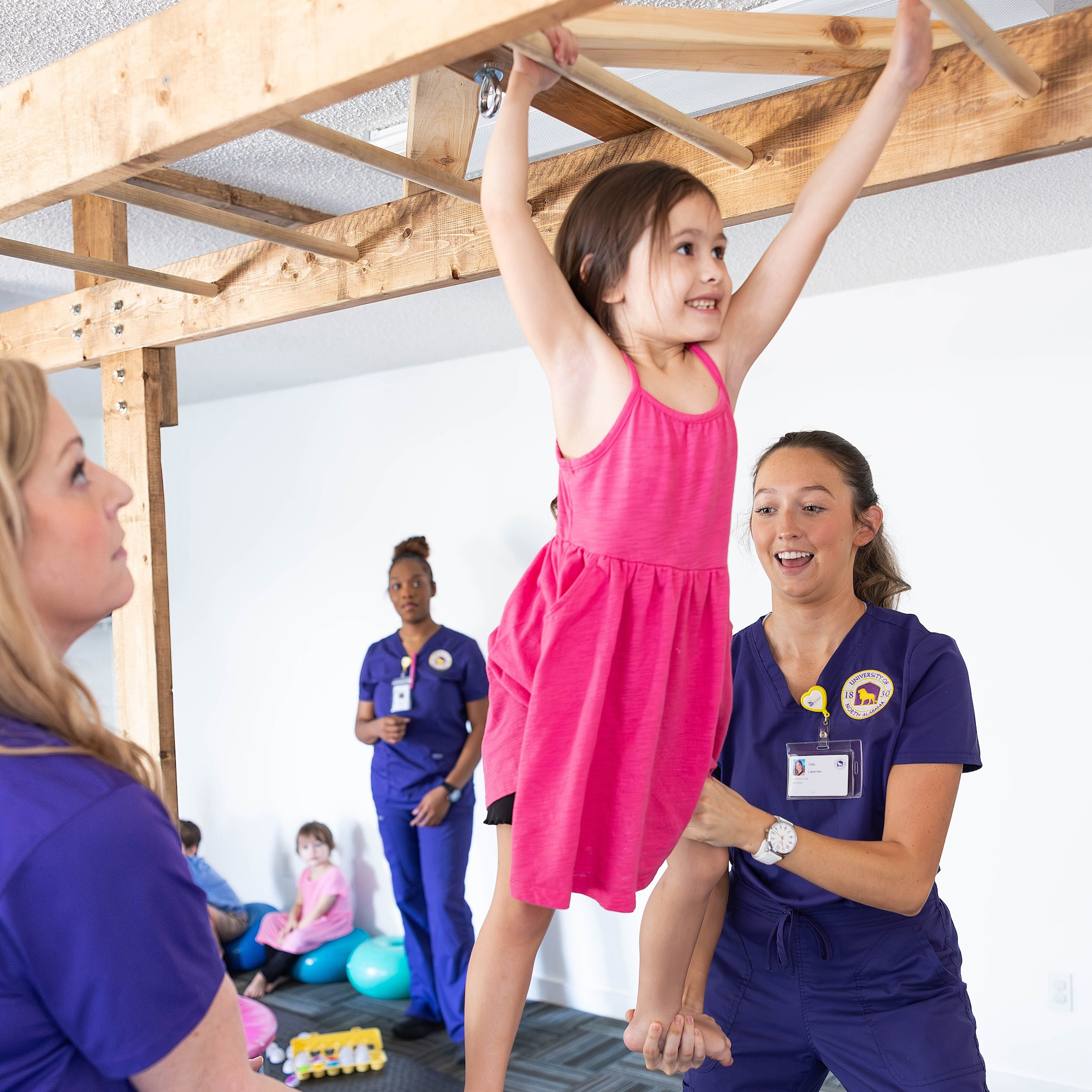
As an occupational therapy assistant student, you will learn to help individuals with:
- Developmental disabilities
- Cognitive impairments
- Age-related challenges
- Physical or neurological injuries
- Emotional or psychological conditions
Degree Earned
Bachelor of Science - Occupational Therapy Assistant
Modality
On-Campus
Time to Complete
4 years
What can I do with a Bachelors in Occupational Therapy Assistant?
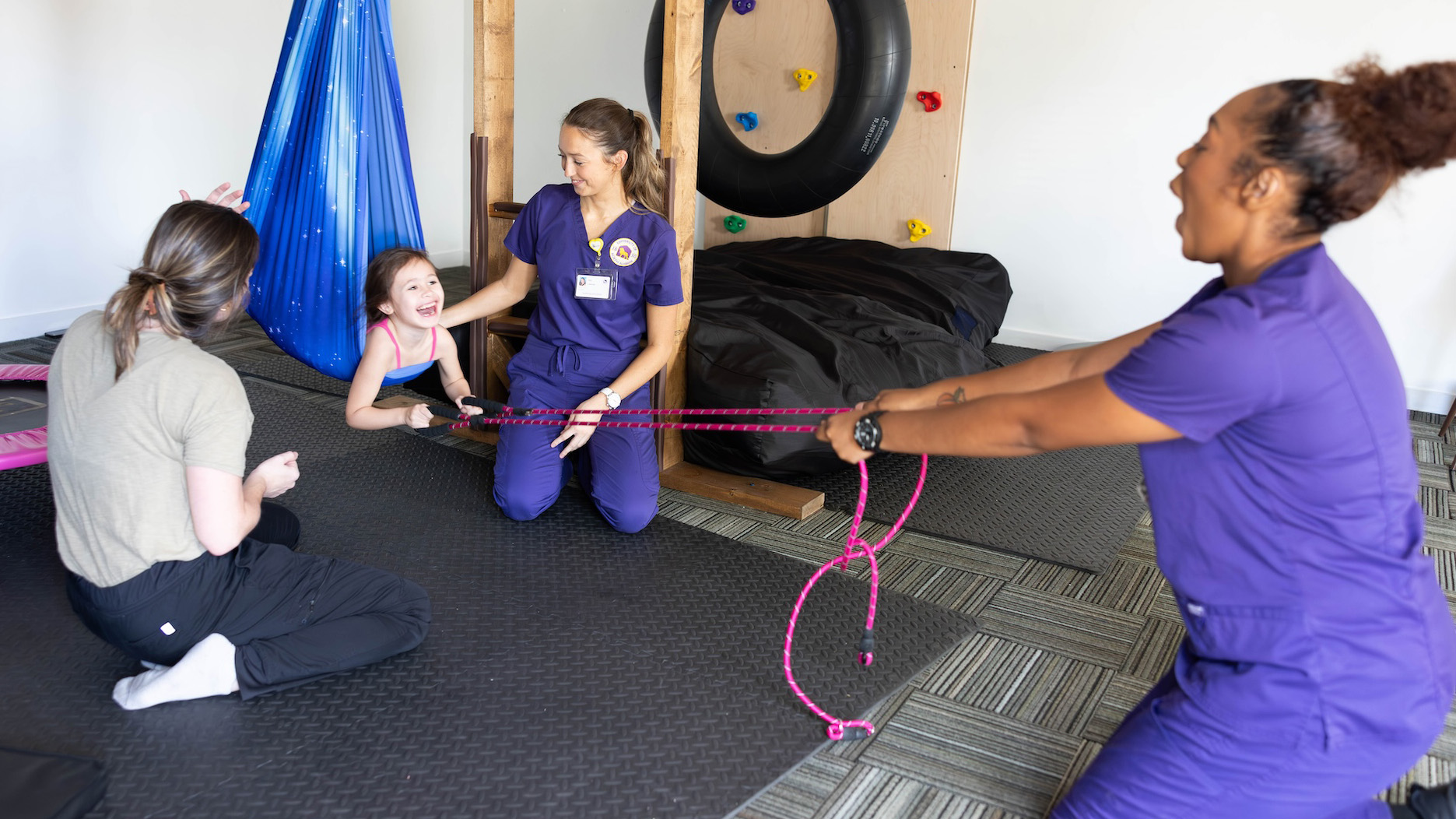
Earning a degree in Occupational Therapy will prepare you for a rewarding career that offers variety and flexibility. OTAs can work in settings such as:
- Hospitals – Assisting patients in regaining basic functional skills for daily activities like showering, feeding themselves, toileting, and getting dressed following surgeries, injuries, or illnesses.
- Skilled Nursing Facilities – Helping individuals regain skills lost after a hospital stay so they can have enough independence to return home. This can include practicing functional transfers, dressing, strengthening, cognition, home management, etc.
- Schools – Helping children with developmental, sensory, or behavioral challenges participate fully in classroom and school activities.
- Home Health – Providing customized interventions to help individuals safely and effectively manage daily tasks in their home environment.
- Outpatient Clinics – Addressing functional deficits through tailored interventions to improve participation in meaningful activities after injuries or illnesses.
- Mental Health Facilities – Facilitating coping skills, sensory integration, emotional regulation, and engagement in daily routines for individuals with mental health needs.
- Community-Based Programs – Empowering individuals and groups to enhance wellness, prevent injury, and promote independence in everyday life.
- Rehab or Acute Rehab -Intensive rehabilitation to regain skills lost through illness or injury to return home independently. This can include learning compensatory skills to promote participation in activities of daily living (ADLs), safety with functional transfers, remediation of lost movement, strengthening, home management, cognitive strategies, etc.
Course Requirements
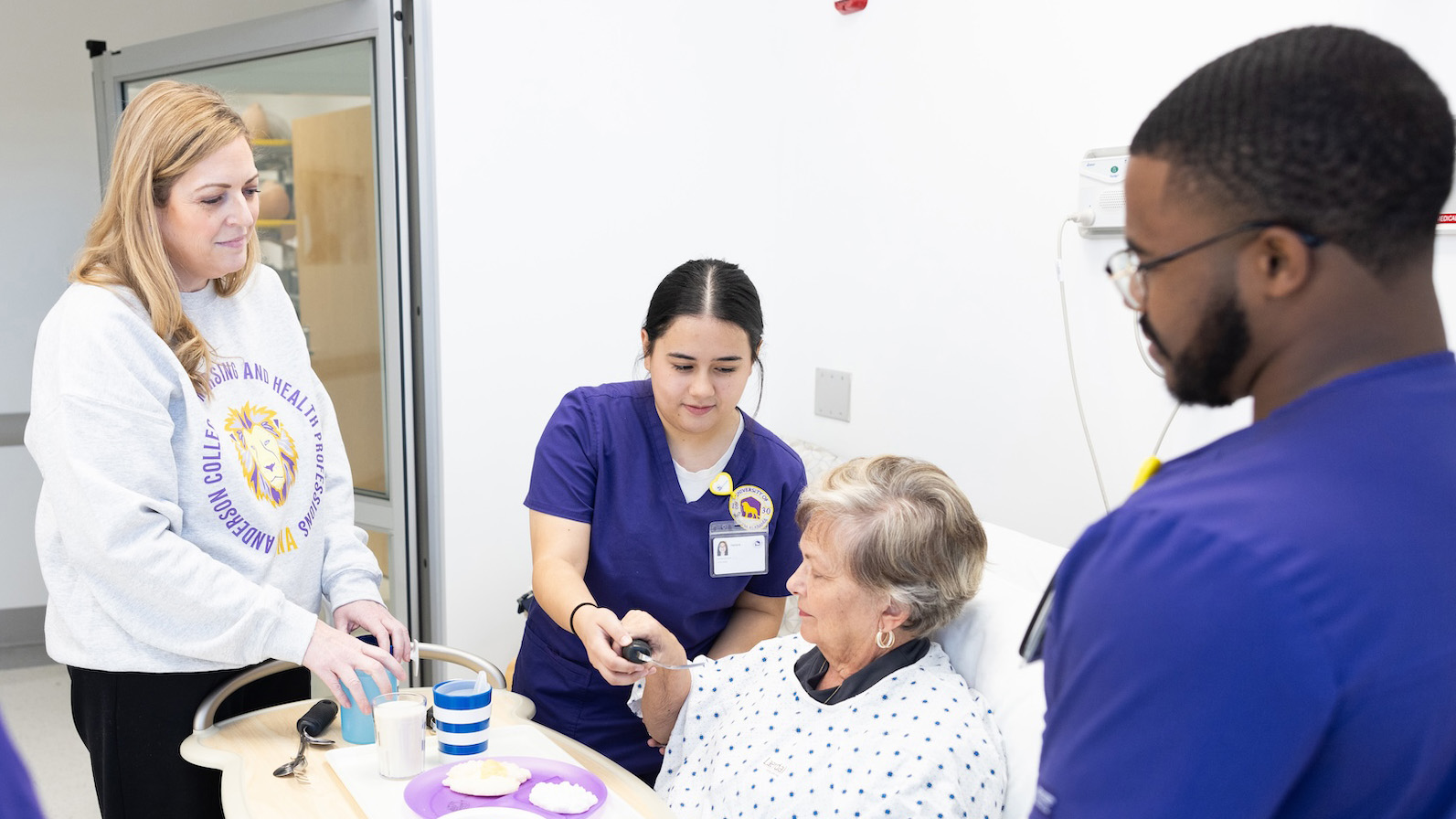
|
Spring 1 Semester |
|
|
|
Course # |
Course Title |
Hours |
|
OT 301 |
Foundations and Framework for OT Practice with Lab |
4 |
|
OT 302 |
Anatomy and Kinesiology with lab |
4 |
|
OT 303 |
Therapeutic Media Design |
3 |
|
OT 304 |
Psychosocial Factors in Occupational Therapy |
3 |
|
Total Hours |
|
14 |
|
Summer 1 Semester |
||
|
Course # |
Course Title |
Hours |
|
OT 305 |
Level 1A, FW #1 |
2 |
|
Total Hours |
|
2 |
|
Fall 1 Semester |
|
|
|
Course # |
Course Title |
Hours |
|
OT 306 |
Pediatric Interventions in Occupational Therapy with Lab |
4 |
|
OT 307 |
Occupational Therapy in Groups and Communities |
3 |
|
OT 308 |
Adult and Older Adult Interventions in Occupational Therapy with Lab |
4 |
|
OT 309 |
Level 1B, FW #2 |
3 |
|
Total Hours |
|
14 |
|
Spring 2 Semester |
||
|
Course # |
Course Title |
Hours |
|
OT 401 |
Level IIA, FW #3 |
6 |
|
OT 402 |
Research Writing for Health Professionals |
3 |
|
OT 403 |
Baccalaureate Project I |
3 |
|
OT 404 |
Medical Documentation for Occupational Therapy |
3 |
|
Total Hours |
|
15 |
|
Fall 2 Semester |
|
|
|
Course # |
Course Title |
Hours |
|
OT 405 |
Baccalaureate Project II |
3 |
|
OT 406 |
OT Principles & Practice: Ethics, Management, and Leadership for the OTA Practitioner |
3 |
|
OT 407 |
Level IIB, FW #4 |
6 |
|
OT 408 |
NBCOT Prep – Credentialing and Licensure Preparation |
1 |
|
Total Hours |
|
13 |
For a complete listing of prerequisite courses please see the Program of Study.
Why the University of North Alabama?
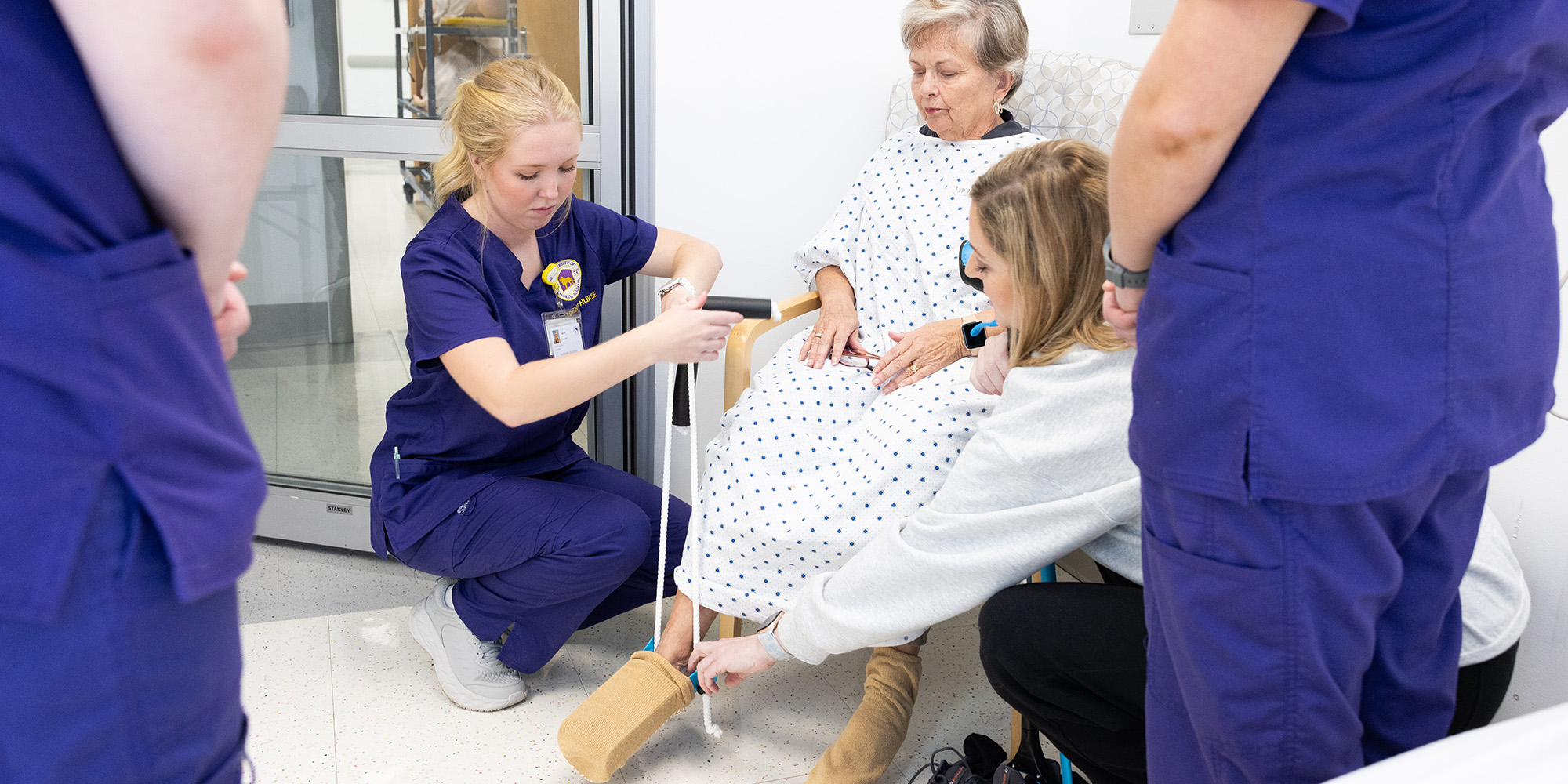
With small class sizes, experiential learning opportunities, and access to our enthusiastic, expert faculty who invest in your academic journey, UNA is uniquely positioned as a leader in academic excellence within the South and beyond.
Accreditation
The baccalaureate-degree-level occupational therapy assistant program has applied for accreditation and has been granted Candidacy Status by the Accreditation Council for Occupational Therapy Education (ACOTE) of the American Occupational Therapy Association (AOTA), located at 7501 Wisconsin Avenue, Suite 510E, Bethesda, MD 20814. ACOTE’s telephone number c/o AOTA is (301) 652-AOTA and its web address is www.acoteonline.org. The program must have a preaccreditation review, complete an on-site evaluation, and be granted Accreditation Status before its graduates will be eligible to sit for the national certification examination for the occupational therapy assistant administered by the National Board for Certification in Occupational Therapy (NBCOT). After successful completion of this exam, the individual will be a Certified Occupational Therapy Assistant (COTA). In addition, all states require licensure to practice; however, state licenses are usually based on the results of the NBCOT Certification Examination. A felony conviction may affect a graduate’s ability to sit for the NBCOT certification examination or attain state licensure.
National Board for Certification in Occupational Therapy (NBCOT®) [Click here]
Faculty
Students will learn from experienced and dedicated faculty who provide hands-on instruction, real-world insights, and mentorship to prepare them for success in diverse occupational therapy settings.
View our Occupational Therapy Faculty here.Admission Requirements
- Admission to the University of North Alabama
- Submit a formal OTA application to the Anderson College of Nursing and Health Professions.
- Possess a minimum overall grade point average of 2.75 (4.0 scale) or higher in required BSOTA courses, including a “C” or higher in all required prerequisite classes as listed in the General Studies Component for Occupational Therapy Assistant majors.
- Students previously enrolled in another occupational therapy assistant program must provide a letter of eligibility to return to the program without stipulation by the dean or director. If ineligible to return to the program, the student is ineligible to apply to the Anderson College of Nursing and Health Professions.
- Students must be eligible to participate in rotations in all fieldwork facilities to be eligible for admission to the program.
- Completed criminal background check and negative drug screen, and must be in good standing with the University Student Conduct.
Graduation Requirements
- A minimum of 121 semester credit hours.
- At least 36 credit hours must be upper-level courses (numbered 300-400).
- At least 50% of the credit hours must be earned from UNA or other four-year institutions.
- At least 25% of the credit hours must be taken at UNA.
- At least 50% of the minimum hour requirements for the major must be in upper level courses (numbered 300-400). Additionally, a minimum of 9 upper level credit hours in the major must be completed at UNA.
- Exceptions to these policies must be compliant with accreditation standards and be approved by the department chair for the major and the dean of the college awarding the degree.
- Completion of the course of study, including the general studies component, major and minor fields (where required) and individual courses, as prescribed by the college for the degree program elected. Possess a minimum overall grade point average of 2.0 (4.0 scale) or higher in required BSOTA courses, including a “C” or higher in all required prerequisite courses.
- Students must complete and pass all Level II fieldwork and the baccalaureate project within 18 months, following completion of didactic portion of the program.
- Graduating students must submit a degree application by the deadline for the particular term in which they plan to grade.
A felony conviction may affect a graduate's ability to sit for the NBCOT examination and obtain state licensure. NBCOT and state licensure boards have the discretion to deny certification or licensure based on a criminal record. Applicants are encouraged to review NBCOT's guidelines and consult with academic advisors to discuss any potential concerns regarding certification eligibility prior to applying for the program.